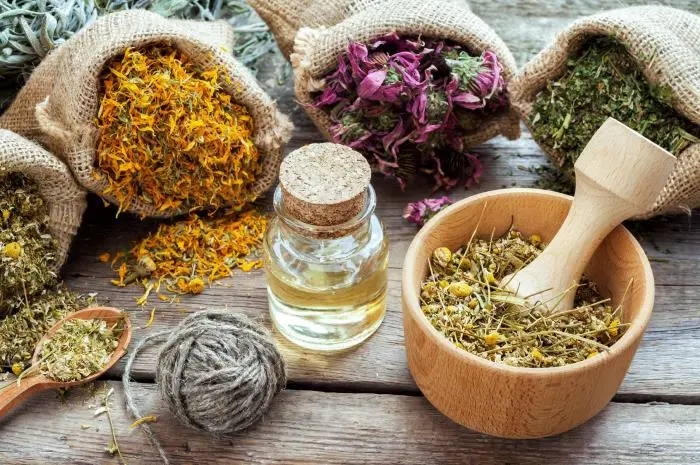In a world increasingly leaning towards organic and natural solutions, the ancient practice of using herbal remedies is experiencing a renaissance.
These natural therapies, rooted in centuries-old wisdom, offer a harmonious blend of health and wellness benefits, drawing from the Earth’s rich pharmacy.
This article explores the resurgence of interest in ancient herbal remedies and their relevance in contemporary health practices.
The Roots of Herbal Medicine
Herbal medicine, one of the oldest forms of healthcare, has been practiced across various cultures for thousands of years. From the lush Ayurvedic herbs of India to the traditional Chinese medicinal plants, every culture has a unique herbal legacy. These practices were not just about treating ailments but were deeply integrated into daily life as preventative measures to maintain balance and wellness.
Understanding the Principles of Herbal Remedies
The core principle of herbal medicine is the holistic approach to health, treating the body as an interconnected system. Unlike conventional medicine, which often focuses on symptoms, herbal remedies aim to address the root cause of ailments. They work by harnessing the natural properties of plants – leaves, roots, seeds, and flowers – to restore the body’s balance and strengthen its natural defenses.
Rediscovery and Modern Adaptation
In modern times, the rediscovery of these ancient remedies has been propelled by a growing awareness of the side effects of synthetic drugs and a desire for more natural, sustainable health practices.
People are increasingly turning to these age-old remedies, often in conjunction with modern medicine, to enhance well-being and treat chronic conditions.
Popular Herbs and Their Uses
Some commonly used herbs include:
- Ginger: Known for its digestive and anti-inflammatory properties, ginger is used to treat nausea, aid digestion, and reduce inflammation.
- Turmeric: A staple in Ayurvedic medicine, turmeric contains curcumin, a compound with strong anti-inflammatory and antioxidant properties.
- Ginseng: Revered in traditional Chinese medicine, ginseng is believed to boost energy, reduce stress, and promote overall health.
- Lavender: Widely used for its calming and relaxing properties, lavender is often used in aromatherapy to alleviate stress and improve sleep.
- Chamomile: Known for its gentle, calming effect, chamomile is commonly used as a sleep aid and to soothe digestive issues.
Integrating Herbal Remedies into Daily Life
Integrating herbal remedies into daily life can be simple. Herbal teas, tinctures, supplements, and topical applications like oils and salves are convenient ways to utilize these remedies.
However, it’s important to understand the appropriate use and dosage, as herbs can be potent and may interact with other medications.
The Role of Scientific Research
While ancient herbal remedies have stood the test of time, scientific research is crucial in validating their efficacy and safety.
Modern studies on herbal medicine focus on understanding the active components of plants and their effects on the human body. This research not only reinforces traditional knowledge but also helps in integrating these remedies into mainstream healthcare.
Sustainability and Ethical Sourcing
As the demand for herbal remedies grows, sustainability and ethical sourcing have become important considerations. Overharvesting and habitat loss threaten many medicinal plants.
Sustainable practices and supporting fair trade products are essential to preserving these natural resources for future generations.
Educating and Empowering Users
Education is key in the effective use of herbal remedies. Understanding the properties, uses, and potential risks of different herbs enables individuals to make informed decisions.
Consulting with healthcare professionals, particularly those knowledgeable in herbal medicine, is also crucial, especially for those with existing health conditions or taking other medications.
The Global Herbal Community
The revival of interest in herbal remedies has fostered a global community of enthusiasts, practitioners, and researchers.
This community plays a vital role in preserving traditional knowledge, sharing practices, and promoting the integration of herbal medicine into modern healthcare.
Conclusion
The resurgence of ancient herbal remedies represents a bridge between the past and the present, offering a harmonious blend of time-tested wisdom and modern health practices.
As we continue to explore and understand the benefits of these natural therapies, herbal medicine stands as a testament to the enduring power of nature’s pharmacy.
Embracing these ancient remedies offers a holistic approach to health and wellness, rooted in the natural world and refined by centuries of human experience.







